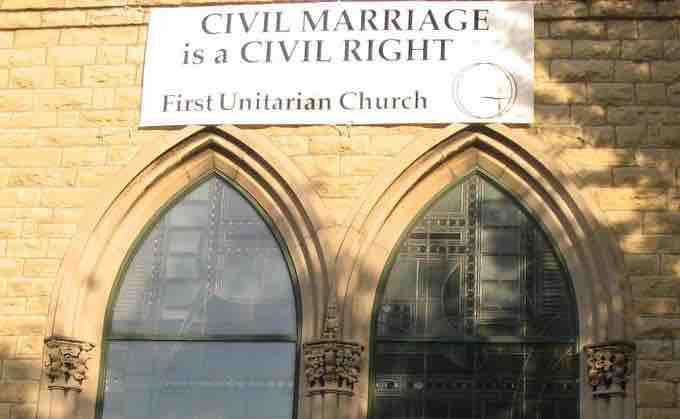Within the United States, religious identity plays a significant role in political participation and voting .

Religious identity
Religious identity plays a significant role in political participation
In 1776, Catholics comprised less than 1% of the population of the new nation, but their presence grew rapidly after 1840 with immigration from Germany, Ireland, Italy, Poland, and elsewhere in Catholic Europe from 1840 to 1914, and also from Latin America in the 20th century. Catholics now comprise 25% to 27% of the national vote, with over 68 million members today. From the mid-19th century until 1964 Catholics were solidly Democratic, with about 80%-90% of them voting democrat. But since the election of a Catholic president in 1960, John F. Kennedy, Catholics have split about 50-50 between the two major parties in national elections.
The Jewish community constitutes about 1.4 - 2.1% of the U.S. population. While earlier Jewish immigrants from Germany tended to be politically conservative, the wave of Eastern European Jews who arrived in the U.S. starting in the 1880s were generally more liberal and soon became the political majority. For most of the 20th century since 1936, the vast majority of Jews in the United States have been aligned with the Democratic Party. Towards the end of the 20th century and into the 21st century, Republicans have launched initiatives to woo American Jews away from the Democratic Party.
Today one-fifth of the U.S. public–and a third of adults under 30–are religiously unaffiliated according to national polls. Exit polls suggest that white Americans without religion vote Democratic at roughly the same rates as they vote Republican. According to exit polls in the 2008 Presidential Election, 71% of non-religious whites voted for Democratic candidate Barack Obama, while 74% of white Evangelical Christians voted for Republican candidate John McCain. This can be compared with the 43–55% share of white votes overall.
A comprehensive study by Harvard University professor Robert Putnam found that religious Americans are three to four times more likely than their nonreligious counterparts to "work on community projects, belong to voluntary associations, attend public meetings, vote in local elections, attend protest demonstrations and political rallies, and donate time and money to causes–including secular ones. "